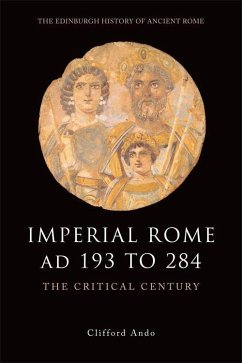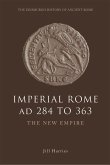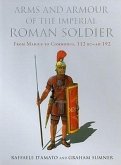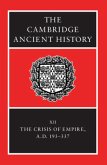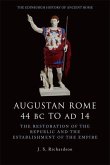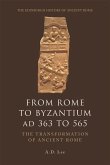Ando brings to life this era of real crisis which was brought on largely by the inadequately articulated mechanisms for succession to the imperial position. Yet the Empire survived precisely because of the efforts and ambitions of the central government. This nuanced and vividly argued book is accessible to students, and thought-provoking for scholars. Michael Peachin, New York University A pioneering history of this period of crisis The Roman empire during the period framed by the accession of Septimus Severus in 193 and the rise of Diocletian in 284 has conventionally been regarded as one of crisis. Between 235 and 284, at least eighteen men held the throne of the empire, for an average of less than three years, a reckoning that does not take into account all the relatives and lieutenants with whom those men shared power. Compared to the century between the accession of Nerva and the death of Commodus, this is a period of striking volatility. The middle of the century also witnessed catastrophic, if temporary, ruptures in the territorial integrity of the empire. Large portions of the eastern and western halves of the empire passed under the control of powers and principalities who assumed the mantle of Roman government and exercised meaningful and legitimate power over millions. Even those regions that remained Roman were subjected to deprivation and pillage by invading armies. The Roman peace, which had become in the last instance the justification for empire, had been shattered. Clifford Ando describes and integrates the contrasting histories of different parts of the empire and assesses the impacts of administrative, political and religious change. Key features: - Follows Rome's confrontation and conflict with a new world power, Sassanian Persia, in which two Roman emperors lost their lives - Devotes special attention to legal history - Examines the changing nature of religious pluralism and the Christian persecutions Clifford Ando is Professor of Classics, History and Law at the University of Chicago and Research Fellow in the Department of Classics and World Languages at the University of South Africa
Hinweis: Dieser Artikel kann nur an eine deutsche Lieferadresse ausgeliefert werden.
Hinweis: Dieser Artikel kann nur an eine deutsche Lieferadresse ausgeliefert werden.

